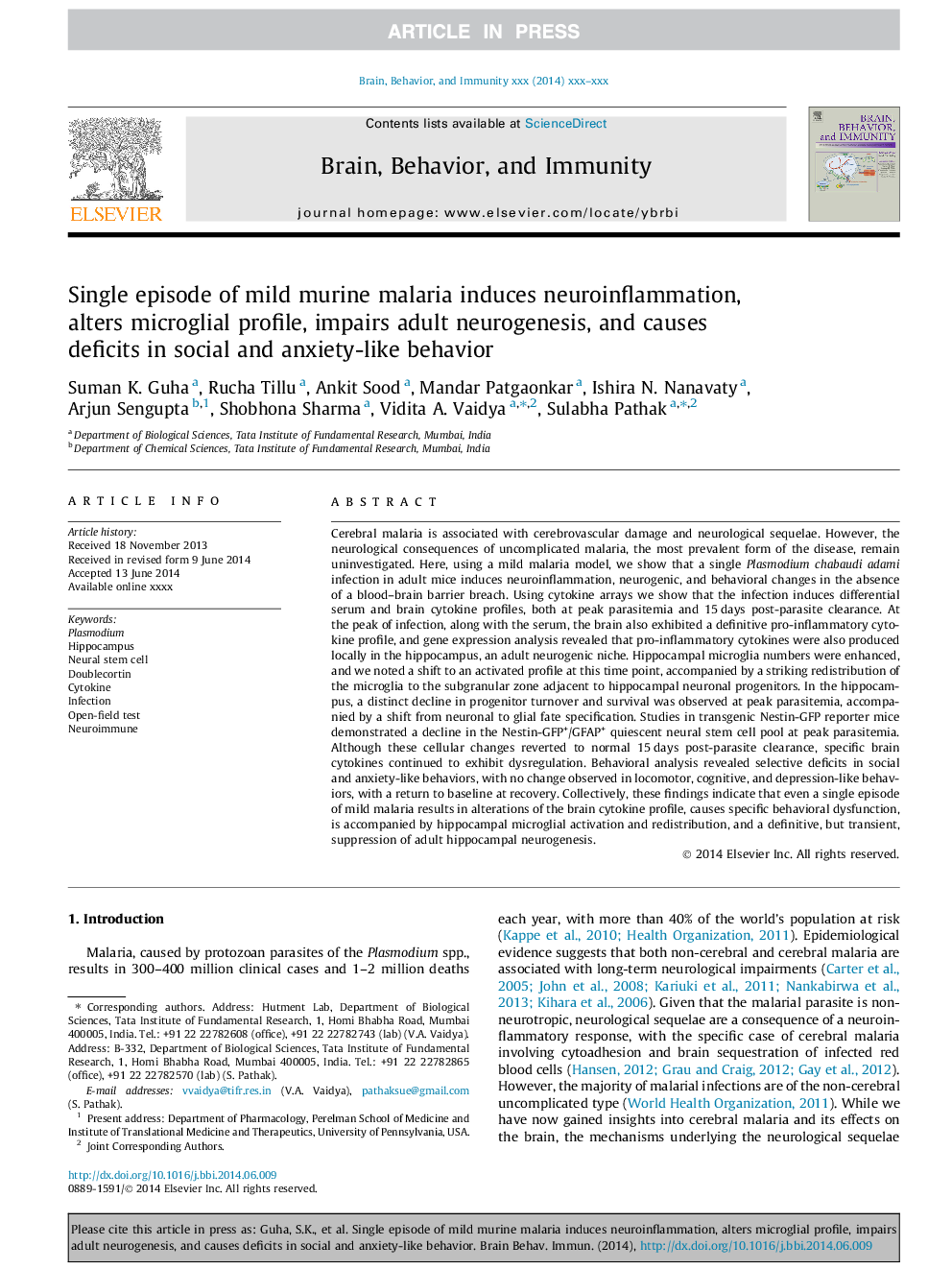| Article ID | Journal | Published Year | Pages | File Type |
|---|---|---|---|---|
| 7281533 | Brain, Behavior, and Immunity | 2014 | 15 Pages |
Abstract
Cerebral malaria is associated with cerebrovascular damage and neurological sequelae. However, the neurological consequences of uncomplicated malaria, the most prevalent form of the disease, remain uninvestigated. Here, using a mild malaria model, we show that a single Plasmodium chabaudi adami infection in adult mice induces neuroinflammation, neurogenic, and behavioral changes in the absence of a blood-brain barrier breach. Using cytokine arrays we show that the infection induces differential serum and brain cytokine profiles, both at peak parasitemia and 15Â days post-parasite clearance. At the peak of infection, along with the serum, the brain also exhibited a definitive pro-inflammatory cytokine profile, and gene expression analysis revealed that pro-inflammatory cytokines were also produced locally in the hippocampus, an adult neurogenic niche. Hippocampal microglia numbers were enhanced, and we noted a shift to an activated profile at this time point, accompanied by a striking redistribution of the microglia to the subgranular zone adjacent to hippocampal neuronal progenitors. In the hippocampus, a distinct decline in progenitor turnover and survival was observed at peak parasitemia, accompanied by a shift from neuronal to glial fate specification. Studies in transgenic Nestin-GFP reporter mice demonstrated a decline in the Nestin-GFP+/GFAP+ quiescent neural stem cell pool at peak parasitemia. Although these cellular changes reverted to normal 15Â days post-parasite clearance, specific brain cytokines continued to exhibit dysregulation. Behavioral analysis revealed selective deficits in social and anxiety-like behaviors, with no change observed in locomotor, cognitive, and depression-like behaviors, with a return to baseline at recovery. Collectively, these findings indicate that even a single episode of mild malaria results in alterations of the brain cytokine profile, causes specific behavioral dysfunction, is accompanied by hippocampal microglial activation and redistribution, and a definitive, but transient, suppression of adult hippocampal neurogenesis.
Keywords
Related Topics
Life Sciences
Immunology and Microbiology
Immunology
Authors
Suman K. Guha, Rucha Tillu, Ankit Sood, Mandar Patgaonkar, Ishira N. Nanavaty, Arjun Sengupta, Shobhona Sharma, Vidita A. Vaidya, Sulabha Pathak,
